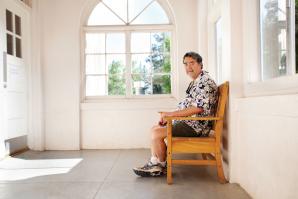In the past few months, Sacramento County’s burgeoning medical marijuana industry has been slashed by two-thirds. Federal and local officials are slapping landlords with fines and criminal charges if they lease or rent to such establishments. In August, Sacramento County was home to 99 medical marijuana dispensaries. By November, more than 63 had closed.
The Greenery Association, a marijuana dispensary on Watt Avenue, was one such business forced to move after Sacramento County sent its landlord a letter stating the shop was operating illegally without a business license or proper building permits.
Similar letters, sent to dozens of property owners leasing space to medical marijuana dispensaries, imposed fines of $500 per day for zoning code violations and $1,000 per day for building code violations. The U.S. Attorney’s Office for the Eastern District of California delivered letters warning landlords that leasing to these facilities is a felony punishable by property forfeiture, up to $500,000 in fines and imprisonment.
“The federal government sent our landlord a letter threatening to take their property from them, and they wouldn’t be able to rent out to any of the other businesses in the complex,” says Rx Pot Shop owner Mo, who wouldn’t reveal her last name. “Everyone is scared, and they are closing their doors.”
Rx Pot Shop voluntarily shut its operation at 6705 Watt Avenue in mid-October to avoid further trouble for the dispensary and the property owner. Mo says five other medical marijuana stores on Watt Avenue closed, too. In 1996, California passed Proposition 215, the Compassionate Use Act, allowing the use of medical marijuana by the seriously ill. However, no ordinances within the unincorporated areas of Sacramento County permit or regulate dispensaries. The lack of a specific county law allowing medical marijuana distribution forbids its sale in unincorporated areas.
“This became an issue starting last year when all of these dispensaries started opening,” says Sacramento County Supervisor Roberta MacGlashan. “The ordinance we have in place now does not allow them, so those that are operating are operating without a valid business license and in violation of our zoning code.”
The Sacramento County Board of Supervisors was poised to pass an interim ordinance to regulate dispensaries in July but held off. On Oct. 7, U.S. Attorney Benjamin Wagner of the Eastern District of California, which includes Sacramento, joined the state’s three other federal attorneys in announcing plans to prosecute marijuana growers, distributors and the property owners renting land or space for such use.
Under federal law, which supersedes all state laws, marijuana is a controlled substance and is illegal to grow or sell in California, even for medicinal purposes, says Lauren Horwood, Wagner’s spokeswoman.
Standing amidst the storm, Magnolia Wellness in Orangevale is open for business, refusing to buckle under increasing federal and county pressure. The dispensary’s staff considered closing in late October after receiving a notice from the U.S. Department of Justice stating they were operating an illegal business and must close.
“We decided it’s in the best interest of the 20,000 patients that we serve to stay open,” says Steven Lee, Magnolia Wellness’s community outreach manager. “To eliminate their safe access (to medical marijuana) on this side of the Sacramento County line does them a disservice.”
Lee says it’s been difficult to run the dispensary while receiving continuous actions and notices from Sacramento County, including repeated building inspections. In response, Magnolia Wellness is fighting back with a lawsuit against Sacramento County, arguing California state law overrides county zoning codes for medical marijuana facilities. Lee wouldn’t comment on the lawsuit.
The proliferation of medical marijuana shops in the unincorporated areas of Sacramento, such as Orangevale and North Highlands, spurred county supervisors to consider a regulation similar to the one enacted by the city of Sacramento. About a year ago, the city adopted an ordinance allowing medical marijuana facilities to apply for special business permits. The 33 dispensaries currently in the city’s lengthy permitting process were put on hold in October when City Manager John Shirey announced a freeze due to the federal government’s stance.
Sacramento County will have more authority to govern medical marijuana dispensaries when Assembly Bill 1300 becomes law on January 1. The bill gives cities and counties the green light to regulate medical marijuana shops in their jurisdictions and enforce criminal and civil charges against them. The legislation would prevent dispensaries, such as Magnolia Wellness, from claiming that state law preempts local ordinances.
Supervisor MacGlashan says the concentration of marijuana shops along Greenback Lane in Orangevale (including Magnolia Wellness) has caused community discord. Orangevale residents and several local business owners have complained about people loitering and smoking marijuana around the dispensaries, among other nuisances, she says.
“We haven’t had any problems at all,” says Laurie Thornton, staffing coordinator for Right at Home, an in-home care business located in the same building as Magnolia Wellness. “They have been good neighbors.”
Dispensaries’ wrangling between county, state and federal governments will continue until clear laws are passed that create a consensus. Until then, shops like Magnolia Wellness will continue to pioneer unknown territory.
“We’re not closing our doors, and we’re not running like everybody else,” says Lee. “We came here to do a job — to serve sick people and take care of the community. We’re not going to back down.”
Recommended For You

Urine Trouble
Workplace drug screening is worth debating
A staffer in the office of Bonney Plumbing, Heating, Air & Rooter Service grew concerned after smelling alcohol on an employee headed out to a job site. The staffer immediately notified management, who met the man at the site and also detected the scent. This was enough reasonable suspicion to demand a drug test, which showed the employee had been intoxicated while driving a company vehicle.

Alternative Lifestyle
In holistic medicine, patients find healing and hogwash
On a spring day in 2011, 60-year-old Russell Edgar checked himself into a 14-day Newstart residential program at the Weimar Center. In the Sierra Nevada foothills above Sacramento, the center promised to teach people with diabetes, obesity and cancer how to reverse their health problems through natural healing methods.



